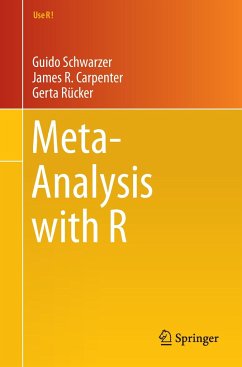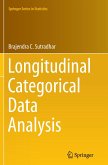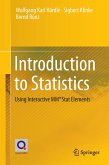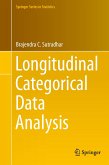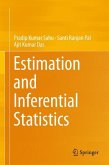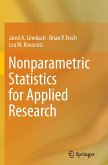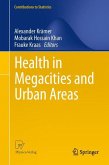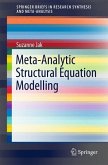This book provides a comprehensive introduction to performing meta-analysis using the statistical software R. It is intended for quantitative researchers and students in the medical and social sciences who wish to learn how to perform meta-analysis with R. As such, the book introduces the key concepts and models used in meta-analysis. It also includes chapters on the following advanced topics: publication bias and small study effects; missing data; multivariate meta-analysis, network meta-analysis; and meta-analysis of diagnostic studies.
"A special feature of the book is the focus on comprehensively described examples. For all these examples, the datasets are provided on the book-related website, which allows readers to reproduce and check the R code while working on the book. ... it can be warmly recommended to all practical researchers who are involved in performing metaanalysis in R as well as to statisticians who seek a book that gives an overview on metaanalytic methods and their implementations in R." (Annika Hoyer, Biometrical Journal, Vol. 59 (1), 2017)
"In Meta-Analysis with R, Schwarzer, Carptenter, and Rücker present the tools and techniques for doing meta-analyses in R. ... The collection of working examples throughout the book is its best feature. Fully worked code examples are provided for almost every problem. ... The book is a great introduction to performingmeta-analysis in R." (James P. Howard II, Journal of Statistical Software, Vol. 70, April, 2016)
"The book concludes with an appendix containing information on how to install R, how to import data (either from text files or from RevMan5) and an overview of R packages for meta analysis. The style of the book, numerous example and references adjacent to each chapter make it suitable (and very useful) to both undergraduates and postgraduates with either a computing or biological background." (Irina Ioana Mohorianu, zbMATH 1333.92002, 2016)
"In Meta-Analysis with R, Schwarzer, Carptenter, and Rücker present the tools and techniques for doing meta-analyses in R. ... The collection of working examples throughout the book is its best feature. Fully worked code examples are provided for almost every problem. ... The book is a great introduction to performingmeta-analysis in R." (James P. Howard II, Journal of Statistical Software, Vol. 70, April, 2016)
"The book concludes with an appendix containing information on how to install R, how to import data (either from text files or from RevMan5) and an overview of R packages for meta analysis. The style of the book, numerous example and references adjacent to each chapter make it suitable (and very useful) to both undergraduates and postgraduates with either a computing or biological background." (Irina Ioana Mohorianu, zbMATH 1333.92002, 2016)

